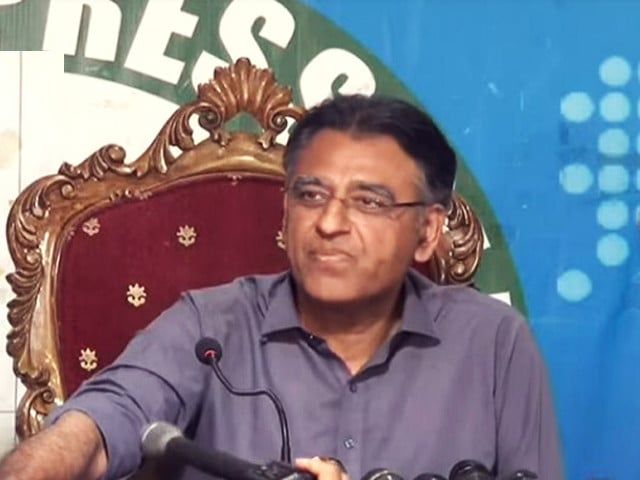PTI leader Asad Umar decided to bid farewell to politics and his long-standing affiliation with the party. This announcement was made via a post on a social media platform, X (formerly Twitter), where Umar expressed his intention to step away from a political career spanning over a decade.
In the heartfelt post, Asad Umar revealed his departure from politics, citing a fundamental disagreement with the aggressive approach towards state institutions. He emphasized the adverse consequences of such a policy, asserting that it has resulted in a significant clash with state entities, which, in his view, is detrimental to the nation’s well-being.
After more than one decade in public life, I have decided to completely quit politics.
As i had already stated publicly earlier that i disagree with the policy of confrontation with state institutions, and such a policy has led to a serious collission with state institutions,…
— Asad Umar (@Asad_Umar) November 11, 2023
This move follows Asad Umar’s earlier decision in May to resign as the secretary general of the PTI, a role he held within the party. The decision came in the aftermath of a crackdown on the party triggered by violent protests on May 9, after the arrest of PTI chief Imran Khan. During a press conference on May 25, Umar clarified that his resignation from the party office was not a result of external pressure but a conscientious choice.
Highlighting the challenging 13 months for the PTI, Umar pointed to the arrests of numerous party workers and his 15-day stint in jail. He called for a transparent inquiry into the May 9 riots, urging accountability for those involved.
With this decision, Asad Umar bids adieu not only to his position as secretary general but also relinquishes his basic membership in the PTI. His departure marks the end of an era, raising questions about the future dynamics within the party and its leadership.
In reflecting on his public service journey, Umar’s departure is met with mixed sentiments from the political landscape. Supporters acknowledge his efforts in representing the NA-54 constituency and his dedication to public service. However, critics question the implications of his disagreement with the party’s policies and the potential impact on the PTI’s unity.
As the news of Asad Umar’s exit reverberates through political circles, speculations arise about the evolving narrative within the PTI and the broader political landscape in Pakistan. The void left by Umar’s departure prompts contemplation about the party’s future trajectory and the recalibration of its internal dynamics.


